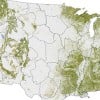Can you cite Wikipedia in a college paper?
Can you cite Wikipedia in a college paper?
My professor told us to cite trusted sources only. Do you think it is a bad idea to cite Wikipedia in a college paper?I would not recommend it. Wikipedia is well known for being a great place to start your research, but not a good place to end it. Because it's so open to editing, the information is not entirely reliable. If possible, go directly to the sources that the page itself offers, or just google the info you've found and see if you can't find it somewhere else that's a more reliable source.
- Larry Wallposted 13 years ago
0
You could, but I would not recommend it. I agree with wayseeker. You can stat with Wilkipedia, see what sources are cited and then check those sources and use those sources to support your paper.
Besides the pososible inaccuracies of Wilkipedia, a lot of people are using it, and professors are going to soon, if they have not already, catch on to where certain quotes are coming from and you could find yourself fighting a plagiarism charge with your professor.
Do your own research--I wrote nine or 10 term papers in college. The research skills I developed served me well in both my newspaper and public relations careers. Never ever cite Wikipedia. Go to the links at the bottom of the page and get your information directly from them. Though even these can be questionable.
Depending on the paper you're looking for scholarly sources, things published in literary journals. Try searching google scholar or using your school's library resources (often they will have online access to scholarly journals, ask your professor).I would say no. However, Wikipedia is a great place to start your research if you don't know much about the topic. Plus I would suggest looking at the links at the bottom of the Wikipedia page for more information.
Also consider asking your professors. Some classes I had in college where we had simple papers to do it was OK to use Wikipedia, but these were not research papers, just 1-2 pagers.Yes, you can. I have done it and I always received great marks. You can cite any website you want but obviously some sites are far better sources than others. Because Wikipedia is a peer reviewed site and continuously monitored and edited, it is a very good website source.
To cite, it would look similar to this, depending on which citation method you are using (this is APA):
Wikipedia. (2012). Some Great Article on Wikipedia. Retrieved from http://www.wikipedia.com/somegreatarticle.html
As others have said, try to find which sources are being used for the Wikipedia page and visit those. That way you can cite the original source and it looks much better. Remember that the most recent sources are always best.
For extra info on APA and how to cite: http://library.concordia.ca/help/howto/ … guid=introMany schools specifically say you cannot use Wikipedia.
Different schools do have different rules even when the majority are doing something different. I guess your best bet would be to ask an instructor.
Here's the deal: Wikipedia, according to an article in New Yorker magazine, has the same error rate as the encyclopedia Britannica (which is not perfect). As an instructor I tell my students not to use Wikipedia as a source in any paper because it tells me they are lazy researchers. I tell them to look at some of the source articles for the Wikipedia entry and evaluate whether these are credible.
Now, at one point when I was taking a grad course, I had a prof who said it was OK to yes Wikipedia for basic descriptive surface information (descriptive information, geography information, stats from government sources). I was quite surprised. I have even seen Wikipedia referenced in academic papers (yes.. really) with this type of information. But at least those papers had a whole lot of other research to balance those citations.
In general, I tell students not to use Wikipedia (or other user created sites) in their work, but maybe to give it a glance as a starting spot to get some general info on a topic. There's nothing worse than seeing a paper where all three sources used are Wikipedia articles.You can if you want to get an F grade and maybe even be penalised for plaguerism.
It can be a good place to start though if you don't know anything about the subject, but peer reviewed journals and books are best for citations. Anybody can post on Wikipedia, so you could be reading "facts" on brain surgery from a 17 year old high school student, for example.As many have already said, it is a bad idea to cite from Wikipedia. Wikipedia is not a scholarly source and as such, should not be cited for any type of college paper. There are so many excellent sources out there, especially through your college, that you can and should be using to ensure your paper is supported by quality research.
Wikipedia is based on other sources.. Perhaps you could just go to wikipedia to find sources and site those. Probably better.
Related Discussions
- 5
How do you cite your sources in an article?
by Kimberly 12 years ago
I have just joined HubPages and have not yet created a hub but I was wondering how you cite a source.
- 9
Scholar Badge or Section for Hub Pages
by Kelly A. Kline 14 years ago
I have been reading several hubs where the author has taken the time to document sources and provide relevant links to scholarly research.The articles are very well researched and well written.I think one thing that could reinforce in the minds of Hubbers and in the minds of the readers the fact...
- 25
I despise research papers
by The10DollarMark 15 years ago
I'm taking this English course and I have to write a Research paper. This didn't sound too bad since I chose a topic I really wanted to do (it's about how the English language has little reading sense and should reform)......but of course my professor requires at least 2 scholarly [print] sources ....
- 6
How do I cite my sources for hubs I research?
by Recipe Gal 13 years ago
How do I cite my sources for hubs I research?I would love to write some hubs that would require me to do a little bit of research. How do I go about citing my sources? In college I always used MLA style in-text citations and a works cited page. That doesn't seem like it would work...
- 30
Wikipedia?
by Shealy Healy 16 years ago
What do you think of Wikipedia?
- 4
Unable to Cite Sources for Images on Niche Sites
by EricDockett 8 years ago
About a week ago I posted about a bug in the new site layouts where the SOURCE link was not showing up under the images. This means any images requiring attribution are being used inappropriately and possibly illegally on the niche sites. Eventually there was a response that the bug was reported,...
















